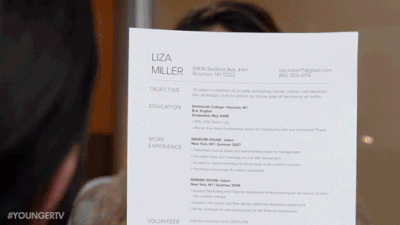Have you taken a career break to start a family of your own or due to temporary retirement? Otherwise, have you taken a break to enjoy yourself and travel the world? Based on this, women outweigh men that took a break due to family and personal reasons.
But whatever was the motive behind you taking a career break, there is always a time when you would decide to jump back on the career ladder. This can be tough and unnerving to get back to work after a break. You might feel anxious about starting a new job or worry about your skills being a little rusty because a lot has changed since you have been away.
7 Ways to Secure a Job After An Employment Gap
In case you feel that you are in a similar situation then these seven tips will increase your chances of getting hired after a career break:
1. Review the Situation
Most people make the mistake of taking up the first job that they find. First and foremost, you should not be unsure about the job as the interviewer would sense uncertainty and would be unlikely to take you further in the hiring process.
The second thing is that if you secure a job that is not suitable for you then you will find yourself moving frequently till the time you find the right one. It is important to take some time to assess your situation and then decide what to do next. You should open your mind and think of what was best for you before the career break and look for a good fit.
2. Update your CV
Most candidates believe that a gap in their CV would ruin their career. But, if you can change this to something positive that can differentiate you from other candidates, it won’t be that bad. If you have not been working for a while then you should not hide it. A break could provide you with a lot of benefits that make you more hireable and give you a chance to step back and re-evaluate your future career. You should add all the new skills that you have developed over your break and explain how it relates to the job that you are applying for. If you are currently unemployed you this simple calculator to know how much benefits you are eligible for.
Working with resume gaps can be as simple as revamping your resume formats and refocusing your entire CV based on skills and interests. Some of the functional aspects of your resume include ensuring that your achievements and skills are emphasized on rather than work history. You can also remove the exact dates from your CV. There is no need to put the exact dates if you are heading back to work in less than a year. You can add volunteer work and talk about skills that you have developed in this time. Just ensure that you do not lie because there will always be the risk of being caught sooner than later.
3. Network
You should connect with your existing connections when you are looking for your first job after a career break. Reach out to all of your previous colleagues, your friends, family, and clients and let them know that you are looking out for a job.
You never know. They might have the perfect job for you. They could also act as a reference to support you with your job applications.
4. Prepare for the Interview After A Career Break
Take time to prepare to answer questions about your career break. Interviewers are quite likely to ask you questions about the career gap and what you did with your time. You need to be honest and make it clear that you decided that the break was the right thing to do at the time. Also, you should tailor your answers to demonstrate how your break will benefit the role that you are applying for. You should think critically about some of the concerns that the interviewer might have. The company may wonder if you have what it takes to rejoin and you will need to demonstrate this by portraying your drive, focus, and passion.
5. Lookout for Career Returner Programs
Apart from using job boards for jobs, research on the various career returner programs that are available to the public. There are certain companies like JP Morgan and Deloitte that encourage these programs. These programs are targeted at those men and women that have taken a career break. Regardless of whether you took a family break or a break for other reasons, this scheme would provide support and experience that will help you re-adjust to work.
6. Training
If you have joined a training course or completed a degree program then you should mention this in your CV. You need all the career advice you can get before you get back from a career break. This will go a long way in ensuring that you are certified with your job and stay updated with new techniques and roles that come your way. You should be able to suggest how this degree/diploma will help further your career and make it a bonus. This would help you explain to the recruiter that you utilized even your time off to better your career and this would add as skills that would make you better positioned for the role.
7. Be Confident
Whether you have been away from 1 to 4 years, getting back into the hiring pool can be nerve-racking. The most important thing that you need to do is to ensure that you remain confident and have faith in your abilities.
If you do not have confidence then you can seriously undervalue yourself and what you can offer the employer. If you are worried, then you should write down your skills and strengths on a slip of paper. You can refer to this in order to boost your energy. If you still happen to be unsure, then ask your family and friends about your strengths and weaknesses. Look at yourself in the mirror and tell yourself what your strengths are, and you can also practice appearing confident.
Switching Gears
If you feel that your skills are no longer up-to-date then you should join a refresher course. Do your research and check on social media channels. Take a look at what the competitors are doing and see if you can do a trends analysis and check on industry news.
Though life is like a bitter-sweet symphony that is determined by success and failure, you should not let one misfortune hamper your confidence. Just like it’s important to stay calm, you should keep a focus. If your mind is focused, then you will overcome a difficult situation. Remember that a strong mind can move a mountain. All you have to do is focus. Simply start applying for jobs, look for ways to learn new skills and improve your profile.


Comments are closed.